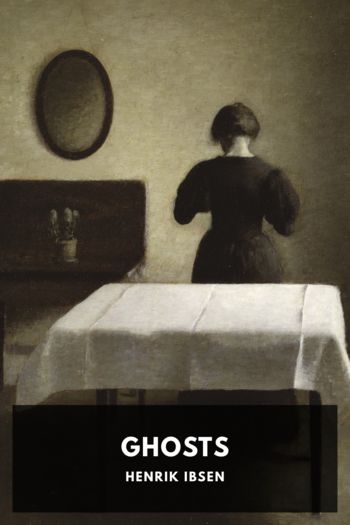Murderous, David Hickson [most read book in the world .TXT] 📗

- Author: David Hickson
Book online «Murderous, David Hickson [most read book in the world .TXT] 📗». Author David Hickson
“We will need to inspect the crates,” said Kenneth in a deep baritone.
“Absolutely.”
“Kenneth does our security,” explained Roelof. I had assumed Kenneth played a non-speaking role in the theatre of the Van Rensburg empire, which I guessed was my prejudice revealing itself.
“Don’t take it personally,” said Kenneth. “We get many people trying to take advantage of us.”
“I can imagine.”
“All we want to do is protect our farm.”
It seemed to me there were a fair number of people who called this farm theirs, but I shuffled some egg about my plate and said, “I understand.”
Roelof placed a sheet of paper before me.
“We need that added to the list,” he said.
There was a single printed line on the page: M183 DCA
“You planning to blow something up?” I asked.
Roelof shrugged. “Mr Van Rensburg needs it added to the list.”
“A demolition charge assembly? That’s sixteen blocks of C-4: detonating clips, boosters, the full kit. Are you sure this is what Mr Van Rensburg is looking for?”
“I’m sure,” said Roelof.
The two of them watched me as if expecting something more.
“No problem,” I said, and turned my attention to my breakfast. It occurred to me that Kenneth had been asked to provide an assessment. He turned to Roelof and spoke in Zulu.
“He knows his weapons,” he said.
Roelof glanced at me anxiously, but I had my eyes down and was tackling another piece of bacon.
“Careful what you say,” said Roelof to him in Zulu, and then in English he said to me: “You speak any Zulu?”
I looked up and shook my head regretfully.
“You do?” I asked.
“I grew up on a farm,” said Roelof.
“I see.”
“Near here.”
“Oh, yes?” We sat in silence for a moment. “I would have thought in the Cape it would have been Xhosa,” I said. “And yet in the Village and on this farm, Zulu is the primary language, isn’t it?”
“Many farms in this area had Zulu workers. They were brought down here in the ’70s and ’80s. I grew up with their children.”
“It makes sense that you would speak the language of your friends.”
“I spoke Zulu as much as I spoke Afrikaans. English is my third language, I studied it at boarding school. You will have to forgive my errors.”
“There are no errors,” I pointed out.
“You should learn to speak Zulu,” said Kenneth. “If you live in our country, you should speak our language.”
“I should,” I admitted.
“Don’t bother with Xhosa or Sotho or the others. Zulu is the only one you need.”
“That’s a relief. It’s bewildering for a foreigner, knowing which of the eleven official languages to start with.”
Kenneth and Roelof looked at me. Their eyes both narrowed a little as they gauged the depth of my criticism of their country.
“You don’t understand us,” said Roelof. “I can see that. You don’t understand why Kenneth, a black man, is trusted by us. You think this war is simple, don’t you? Black and white.”
“I don’t think any war is simple,” I said.
“Here on the farm we understand each other,” said Roelof. “There is a balance, and we all know where we fit. We respect each other, don’t we Kenneth?”
“I have great respect for the Van Rensburg family,” agreed Kenneth gravely.
“Wonderful,” I said. I didn’t ask whether all members of the Van Rensburg family returned that respect, because we all knew the answer to that.
Piet van Rensburg and Billy Mabele rolled into the breakfast room looking like two peas in a pod. They were wearing almost identical linen suits, both equally crumpled, but Billy’s had a fresh coffee stain and Piet’s had a trail of cigar ash on the lapel.
“Take it outside,” said Piet. “Finish up on the drive. Billy and I will take the lead, you lot bring up the rear.”
“And your son, sir?” asked Roelof, who was already on his feet and preparing to go.
“He’s picking a fight with that girl of his,” said Piet, and he scowled. “We’ll go without him.”
Roelof drove the open-topped jeep in the way he did everything else. With consummate control. His hands were steady on the wheel as he allowed the tyres to find their own path across the rough ground, the engine at the perfect pitch, the gear correct, the speed just right. Piet managed to get the jeep he and Billy were in stuck in some loose sand – Roelof engaged low range, touched bumpers and pushed them out with hardly a pause. Neither Piet nor Billy seemed to notice.
“You’ve done this before,” I said.
Roelof turned to me.
“Mr Moss,” he said. “I should tell you that in business, I am a wary person. Mr Van Rensburg has taught me to trust my gut instinct. On some rare occasions my instinct contradicts that of my boss, and when that happens I like to take things slowly. This is one of those occasions.”
“Absolutely right,” I said. “Slow is good. We’ll take this one small step at a time.”
Roelof nodded curtly and turned back to the road. Behind us, the slightly ominous presence of Kenneth made itself felt as he shifted the position of the shotgun he held on his lap. The farm might have none of the big cats on it, but Kenneth had warned that it was not safe. “The ecosystem is out of balance,” he explained, and I assumed that he was referring to the animal kingdom, although I did wonder whether he meant the chances of bumping into one of Hendrik’s White Africans, or even a rogue Economic Freedom Fighter from the Village.
Ahead of us Piet was now driving his jeep a little too fast across the bumpy terrain, and their two heavy bodies bounced comically in unison. Piet was pointing up at the sky. The clouds were still stuck on the escarpment, and the pale winter sun was unimpeded. Gentle thermals were rising from the heated ground, and floating high above us was the spiral of vultures I had





Comments (0)